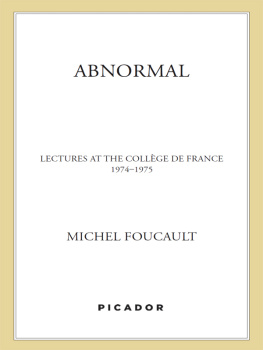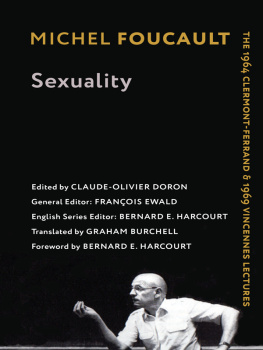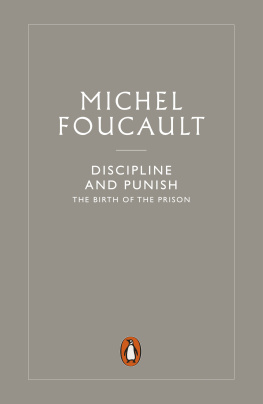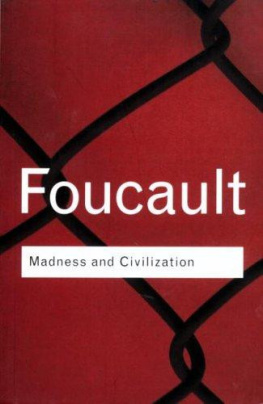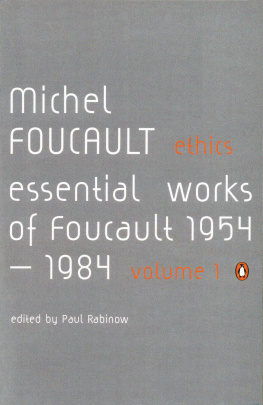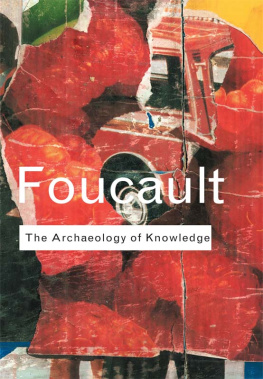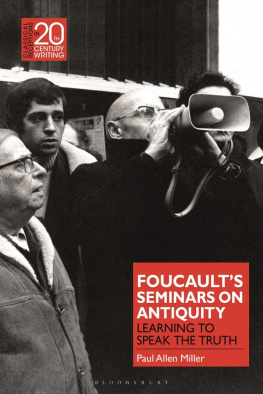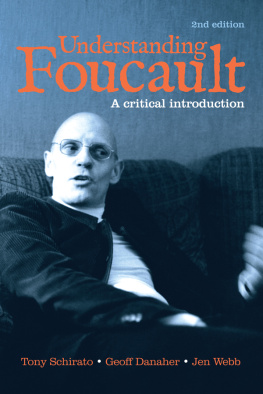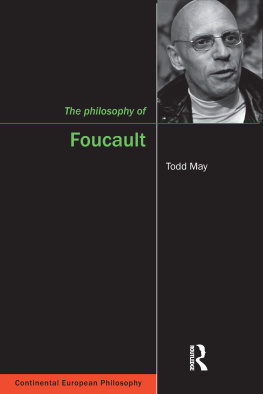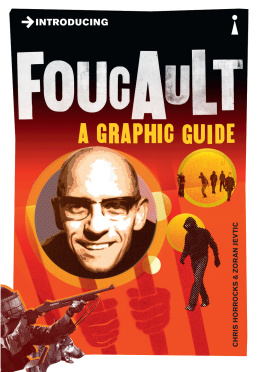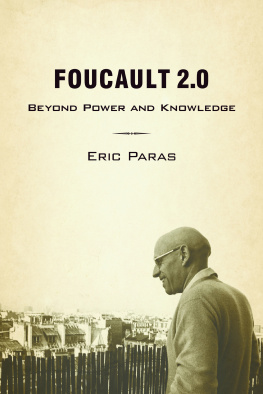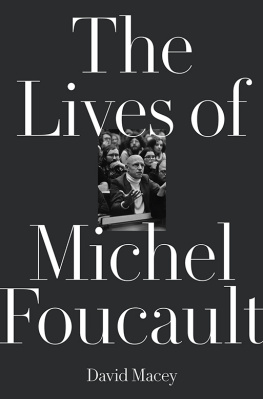Contents
Expert psychiatric opinion in penal cases. ~ What kind of discourse is the discourse of expert psychiatric opinion? ~ Discourses of truth and discourses that make one laugh. ~ Legal proof in eighteenth-century criminal law. ~ The reformers. ~ The principle of profound conviction. ~ Extenuating circumstances. ~ The relationship between truth and justice. ~ The grotesque in the mechanism of power. ~ The psychological-moral double of the offense. ~ Expert opinion shows how the individual already resembles his crime before he has committed it. ~ The emergence of the power of normalization.
Madness and crime. ~ Perversity and puerility. ~ The dangerous individual. ~ The psychiatric expert can only have the character of Ubu. ~ The epistemological level of psychiatry and its regression in expert medico-legal opinion. ~ End of the antagonistic relationship between medical power and judicial power. ~ Expert opinion and abnormal individuals (les anormaux). ~ Criticism of the notion of repression. ~ Exclusion of lepers and inclusion of plague victims. ~ Invention of positive technologies of power. ~ The normal and the pathological.
Three figures that constitute the domain of abnormality: the human monster, the individual to be corrected, the masturbating child. ~ The sexual monster brings together the monstrous individual and the sexual deviant. ~ Historical review of the three figures. ~ Reversal of their historical importance. ~ Sacred embryology and the juridico-biological theory of the monster. ~ Siamese twins. ~ Hermaphrodites: minor cases. ~ The Marie Lemarcis case. ~ The Anne Grandjean case.
The moral monster. ~ Crime in classical law. ~ The spectacle of public torture and execution (la supplice). ~ Transformation of the mechanisms of power. ~ Disappearance of the ritual expenditure of punitive power. ~ The pathological nature of criminality. ~ The political monster: Louis XVI and Marie-Antoinette. ~ The monster in Jacobin literature (the tyrant) and anti-Jacobin literature (the rebellious people). ~ Incest and cannibalism.
In the land of the ogres. ~ Transition from the monster to the abnormal (lanormal). ~ The three great founding monsters of criminal psychiatry. ~ Medical power and judicial power with regard to the notion of the absence of interest. ~ The institutionalization of psychiatry as a specialized branch of public hygiene and a particular domain of social protection. ~ Codification of madness as social danger. ~ The motiveless crime (crime sans raison) and the tests of the enthronement of psychiatry. ~ The Henriette Corniercase. ~ The discovery of the instincts.
Instinct as grid of intelligibility of motiveless crime and of crime that cannot be punished. ~ Extension of psychiatric knowledge and power on the basis of the problematization of instinct. ~ The 1838 law and the role claimed by psychiatry in public security. ~ Psychiatry and administrative regulation, the demand for psychiatry by the family, and the constitution of a psychiatric-political discrimination between individuals. ~ The voluntary-involuntary axis, the instinctive and the automatic. ~ The explosion of the symptomatological field. ~ Psychiatry becomes science and technique of abnormal individuals. ~ The abnormal: a huge domain of intervention.
The problem of sexuality runs through the field of abnormality. ~ The old Christian rituals of confession. ~ From the confession according to a tariff to the sacrament of penance. ~ Development of the pastoral. ~ Louis Haberts Pratique du sacrament de pnitence and Charles Borromes (Carlo Borromeo) Instructions aux confesseurs. ~ From the confession to spiritual direction. ~ The double discursive filter of life in the confession. ~ Confession after the Council of Trent. ~ The sixth commandment: models of questioning according to Pierre Milhard and Louis Habert. ~ Appearance of the body of pleasure and desire in penitential and spiritual practices.
A new procedure of examination: the body discredited as flesh and the body blamed through the flesh. ~ Spiritual direction, the development of Catholic mysticism, and the phenomenon of possession. ~ Distinction between possession and witchcraft. ~ The possessions of Loudon. ~ Convulsion as the plastic and visible form of the struggle in the body of the possessed. ~ The problem of the possessed and their convulsions does not belong to the history of illness. ~ The anticonvulsives: stylistic modulation of the confession and spiritual direction; appeal to medicine; recourse to disciplinary and educational systems of the seventeenth century. ~ Convulsion as neurological model of mental illness.
The problem of masturbation between the Christian discourse of the flesh and sexual psychopathology. ~ Three forms of the somatization of masturbation. ~ The pathological responsibility of childhood. ~ Prepubescent masturbation and adult seduction; the offense comes from outside. ~ A new organization of family space and control: the elimination of intermediaries and the direct application of the parents body to the childs body. ~ Cultural involution of the family. ~ The medicalization of the new family and the childs confession to the doctor, heir to the Christian techniques of the confession. ~ The medical persecution of childhood by means of the restraint of masturbation. ~ The constitution of the cellular family that takes responsibility for the body and life of the child. ~ Natural education and State education.
What makes the psychoanalytic theory of incest acceptable to the bourgeois family (danger comes from the childs desire). ~ Normalization of the urban proletariat and the optimal distribution of the working-class family (danger comes from fathers and brothers). ~ Two theories of incest. ~ The antecedents of the abnormal: psychiatric-judicial mesh and psychiatric-familial mesh. ~ The problematic of sexuality and the analysis of its irregularities. ~ The twin theory of instinct and sexuality as epistemologico-political task of psychiatry. ~ The origins of sexual psychopathology (Heinrich Kaan). ~ Etiology of madness on the basis of the history of the sexual instinct and imagination. ~ The case of the soldier Bertrand.
A mixed figure: the monster, the masturbator, and the individual who cannot be integrated within the normative system of education. ~ The Charles Jouy case and a family plugged into the new system of control and power. ~ Childhood as the historical condition of the generalization of psychiatric knowledge and power. ~ Psychiatrization of infantilism and constitution of a science of normal and abnormal conduct. ~ The major theoretical constructions of psychiatry in the second half of the nineteenth century. ~ Psychiatry and racism: psychiatry and social defense.
Foreword
MICHEL FOUCAULT TAUGHT AT the Collge de France from January 1971 until his death in June 1984 (with the exception of 1977, when he took a sabbatical year). The title of his chair was the History of Systems of Thought.
On the proposal of Jules Vuillemin, the chair was created on 30 November 1969 by the general assembly of the professors of the Collge de France and replaced that of the History of Philosophical Thought held by Jean Hyppolite until his death. The same assembly elected Michel Foucault to the new chair on 12 April 1970. He was forty-three years old.
Michel Foucaults inaugural lecture was delivered on 2 December 1970.
Teaching at the Collge de France is governed by particular rules. Professors must provide twenty-six hours of teaching a year (with the possibility of a maximum of half this total being given in the form of seminars). In the terminology of the Collge de France, the professors do not have students but only auditors.

